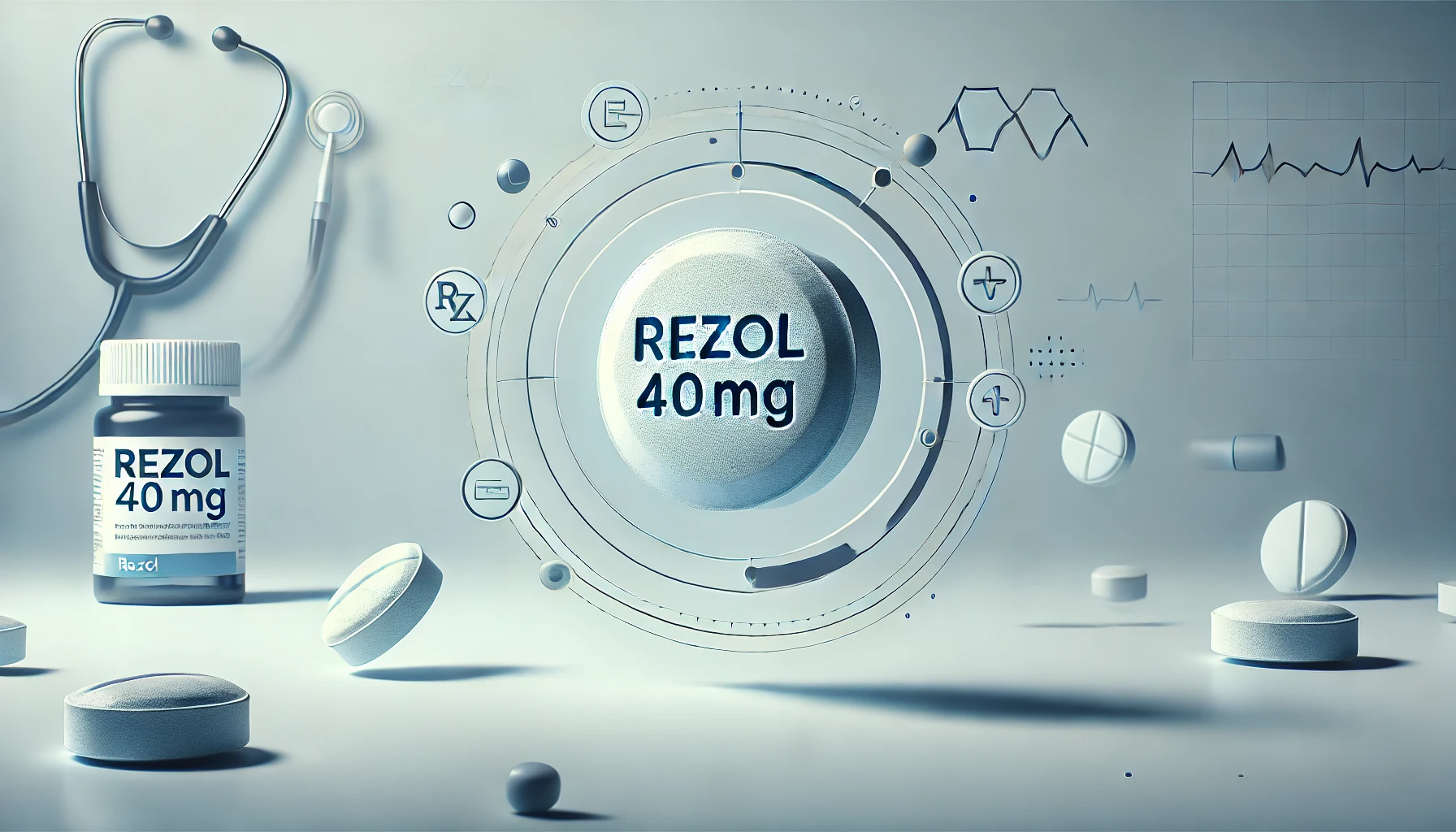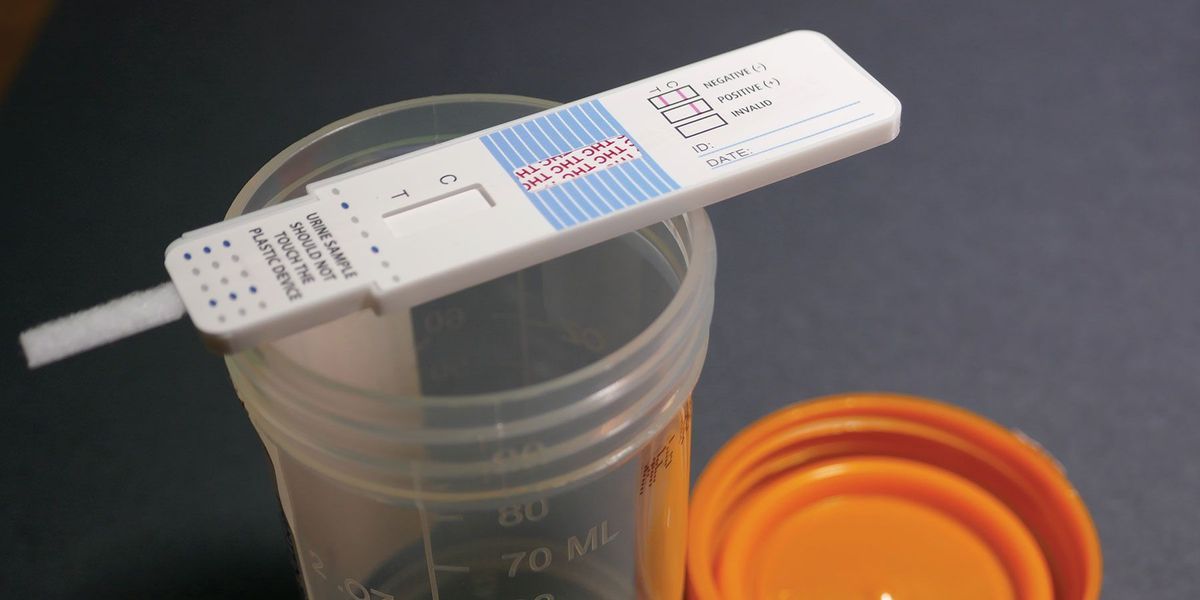Stomach acid can be a major source of discomfort for many people. Conditions such as acid reflux, gastroesophageal reflux disease (GERD), and peptic ulcers are all linked to excessive acid production in the stomach. One effective medication used to manage these conditions is Rezol 40mg. In this article, we’ll dive into how Rezol 40mg tablet reduces acid production in the stomach, how it works, its benefits, and what you need to consider when using it.
What is Rezol 40mg?
Rezol 40mg is a prescription medication that belongs to a class of drugs known as proton pump inhibitors (PPIs). It is commonly used to treat conditions related to excessive stomach acid. The active ingredient in Rezol is Pantoprazole, which works by decreasing the amount of acid produced in the stomach.
Pantoprazole is effective in managing various gastrointestinal conditions by reducing acid secretion. This can help alleviate symptoms associated with acid-related disorders, such as heartburn, indigestion, and stomach ulcers.
How Does Rezol 40mg Work?
To understand how Rezol 40mg works, it’s essential to know a bit about stomach acid production. The stomach produces acid to aid in digestion and kill harmful bacteria. However, when acid production is excessive, it can lead to discomfort and various health issues.
Rezol 40mg contains Pantoprazole, which acts on the proton pumps in the stomach. Proton pumps are enzymes found in the lining of the stomach that are responsible for secreting acid. Pantoprazole inhibits these proton pumps, leading to a significant reduction in the amount of acid produced.
By reducing acid production, Rezol helps to create a less acidic environment in the stomach. This can lead to relief from symptoms such as heartburn, pain, and discomfort caused by acid-related conditions. Additionally, it allows the stomach lining to heal if it has been damaged by excessive acid.
Conditions Treated by Rezol 40mg
Rezol 40mg is used to treat several conditions associated with excessive stomach acid:
- Gastroesophageal Reflux Disease (GERD): GERD is a chronic condition where stomach acid frequently leaks into the esophagus, causing symptoms like heartburn and irritation. Rezol helps reduce the acid production that triggers these symptoms.
- Peptic Ulcers: Peptic ulcers are sores that develop on the lining of the stomach or the upper part of the small intestine. Excessive stomach acid can exacerbate these ulcers. Rezol reduces acid production, which helps in the healing process.
- Erosive Esophagitis: This condition, caused by inflammation and damage to the esophagus from stomach acid, can lead to pain and difficulty swallowing. By reducing acid levels, Rezol helps alleviate symptoms and promote healing.
- Zollinger-Ellison Syndrome: This rare condition involves tumors in the pancreas or duodenum that cause excessive acid production. Rezol helps manage the high acid levels associated with this syndrome.
Benefits of Using Rezol 40mg
Using Rezol 40mg offers several benefits for individuals suffering from acid-related conditions:
- Effective Acid Reduction: Rezol significantly reduces stomach acid production, providing relief from symptoms associated with acid reflux and ulcers.
- Promotes Healing: By decreasing acid levels, Rezol allows the stomach lining and esophagus to heal from damage caused by excessive acid.
- Improves Quality of Life: Reducing acid production can lead to improved comfort and a better quality of life for individuals with chronic acid-related conditions.
- Prevents Complications: Managing acid production effectively can help prevent complications such as bleeding ulcers and esophageal damage.
- Convenient Dosage: Rezol 40mg is typically taken once daily, making it a convenient option for managing chronic conditions.
How to Take Rezol 40mg
To get the most benefit from Rezol 40mg, it’s important to follow the prescribed dosage and instructions provided by your healthcare provider. Here’s a general guide on how to take the medication:
- Dosage: The usual dose of Rezol 40mg is one tablet taken once daily. However, the exact dosage may vary based on the condition being treated and your specific needs.
- Administration: Take Rezol 40mg before a meal, typically in the morning. Swallow the tablet whole with a glass of water. Do not crush or chew the tablet.
- Consistency: For best results, take Rezol at the same time each day. This helps maintain a consistent level of the medication in your system.
- Duration: Follow your healthcare provider’s instructions regarding the duration of treatment. Do not stop taking Rezol or adjust the dosage without consulting your doctor.
Potential Side Effects of Rezol 40mg
While Rezol 40mg is generally well-tolerated, it can cause side effects in some individuals. Common side effects may include:
- Headache: Some people may experience headaches while taking Rezol. This is usually mild and temporary.
- Nausea and Vomiting: Digestive issues such as nausea or vomiting can occur. These symptoms are often mild and may improve with time.
- Diarrhea or Constipation: Changes in bowel movements, including diarrhea or constipation, may be experienced.
- Abdominal Pain: Some individuals may experience stomach pain or discomfort.
If you experience severe or persistent side effects, contact your healthcare provider. In rare cases, Rezol can cause more serious side effects, such as severe allergic reactions or liver problems. Seek medical attention if you notice symptoms like rash, itching, swelling, or jaundice (yellowing of the skin or eyes).
Interactions with Other Medications
Rezol 40mg can interact with other medications, which may affect how well it works or increase the risk of side effects. Inform your healthcare provider about all the medications you are currently taking, including over-the-counter drugs, supplements, and herbal remedies.
Some medications that may interact with Rezol include:
- Antifungal Medications: Certain antifungal drugs may affect the absorption of Rezol.
- Blood Thinners: Medications that affect blood clotting, such as warfarin, may interact with Rezol.
- Certain Antidepressants: Some antidepressants may interact with Rezol and affect its effectiveness.
Your healthcare provider can help you manage potential interactions and ensure that Rezol is safe for you to use in combination with other medications.
Lifestyle and Dietary Considerations
While Rezol 40mg helps reduce stomach acid, making some lifestyle and dietary changes can further enhance its effectiveness and overall digestive health:
- Avoid Trigger Foods: Certain foods and beverages, such as spicy foods, citrus fruits, and caffeine, can increase acid production and exacerbate symptoms. Try to avoid or limit these triggers.
- Eat Smaller Meals: Eating smaller, more frequent meals can help reduce the burden on your digestive system and prevent excessive acid production.
- Stay Hydrated: Drinking plenty of water can help flush out excess acid and support overall digestive health.
- Maintain a Healthy Weight: Excess weight can put additional pressure on the stomach and contribute to acid reflux. Maintaining a healthy weight through diet and exercise can be beneficial.
- Quit Smoking: Smoking can increase stomach acid production and weaken the lower esophageal sphincter, leading to acid reflux. Quitting smoking can improve your symptoms and overall health.
Long-Term Use and Monitoring
If you need to take Rezol 40mg for an extended period, regular monitoring by your healthcare provider is essential. This helps ensure that the medication continues to be effective and that you do not experience any long-term side effects.
Your doctor may recommend periodic blood tests or other evaluations to monitor your health and adjust the treatment plan if needed. It’s important to attend these follow-up appointments and communicate any concerns or changes in symptoms.
Alternatives to Rezol 40mg
In addition to Rezol, there are other treatments available for managing stomach acid-related conditions. Some alternatives include:
- Other Proton Pump Inhibitors (PPIs): Medications such as Omeprazole, Esomeprazole, and Lansoprazole also reduce stomach acid and may be prescribed based on individual needs.
- H2-Receptor Antagonists: Drugs like Ranitidine and Famotidine decrease acid production by blocking histamine receptors in the stomach.
- Antacids: Over-the-counter antacids neutralize stomach acid and provide quick relief for occasional symptoms.
- Lifestyle Modifications: Dietary and lifestyle changes can complement medication and help manage symptoms effectively.
Discuss with your healthcare provider to determine the most appropriate treatment plan based on your specific condition and health needs.
Conclusion
Rezol 40mg is an effective medication for reducing stomach acid production, offering relief from conditions such as GERD, peptic ulcers, and erosive esophagitis. By inhibiting the proton pumps responsible for acid secretion, Rezol helps manage symptoms and promotes healing of the digestive tract.





